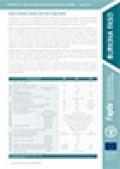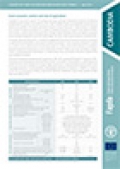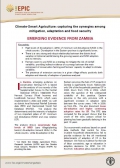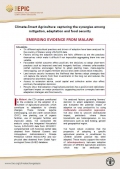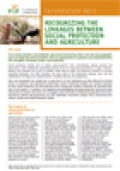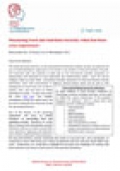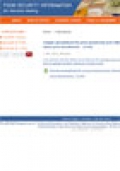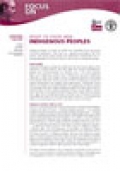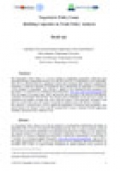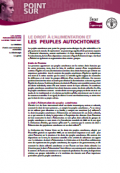Publications
Publication series
Latest publications
Technical brief, 2014
Burkina Faso has succeeded in achieving the Maputo Declaration target by allocating at least 10 percent of the national budget to agriculture almost every year since 2003. Most of these expenditures have been allocated...
Available in:English
Technical brief, 2014
In Cambodia, the government has given increasing priority to commercial rice production by promoting higher yield seeds and expanding irrigation and post production infrastructure. Relevant reforms have been adopted in favour of the fisheries sector....
Available in:English
Technical brief, 2013
This brief provides emerging evidence from the implementation of the Climate-Smart Agriculture project in Zambia. The analysis clearly indicates that better screening of agro-ecological and socio-economic constraints and incentives for adoption of conservation farming are...
Available in:English
Technical brief, 2013
This brief provides emerging evidence from the implementation of the Climate-Smart Agriculture project in Malawi. We analyze factors governing farmers’ decision to adopt adaptation strategies and evaluate the potential impact of adoption on crop productivity...
Available in:English
Technical brief, 2013
Since social protection and smallholder agricultural interventions often cover the same geographic space and target the same households, there are opportunities for synergies and complementarities that strengthen livelihoods of poor rural households.
Available in:English
Technical brief, 2011
In November 2011 an online discussion on "Measuring Food and Nutrition Security"was held by FAO's Food and Nutrition Security Forum. Participants discussed factors affecting their choice of indicators and how this choice affects their work....
Available in:English
Technical brief, 2011
This sample spread sheet accompanies the simple price monitoring tool to assess monthly changes in food prices.
Available in:English
Technical brief, 2007
Indigenous peoples are among the world’s most vulnerable groups and poorest socio-ethnic populations. They make up a significant percentage of the food insecure, often facing chronic hunger and malnutrition. Paradoxically, due to a growing dependency...
Available in:English
Technical brief, 2007
The Negociatrix Policy Game is a tool for training in multilateral negotiation, which has been developed through a partnership between FAO and the University of Wageningen in the Netherlands. This tool is a software based...
Available in:English
Technical brief, 2007
Les peiples autochtones sont parmi les groupes socio-ethniques les plus vulnérables et les
plus pauvres du monde. Ils représentent un pourcentage significatif des personnes exposées
à l’insécurité alimentaire, souvent confrontées à la faim chronique...
Available in:English




